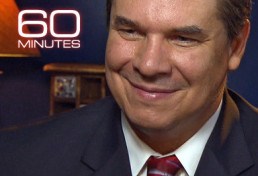Karen Ansara
 (Editor’s Note: Much has already been written on the Greg Morenson saga, but little on what the reaction is from those who donated to his Institute. In this post, Karen Ansara – a Boston-based philanthropist, a passionate advocate of international giving, a moving spirit being the New England International Donors (NEID), and a donor to Mortenson – reflects on her own encounters with Greg Mortenson and her reflections on the recent controversy).
(Editor’s Note: Much has already been written on the Greg Morenson saga, but little on what the reaction is from those who donated to his Institute. In this post, Karen Ansara – a Boston-based philanthropist, a passionate advocate of international giving, a moving spirit being the New England International Donors (NEID), and a donor to Mortenson – reflects on her own encounters with Greg Mortenson and her reflections on the recent controversy).
Alpinists are risk takers. So are founders.
Some alpinists – like some founders – take extreme risks and “go it alone.” Others know that a trusted partner or team enhance your chance of success and survival. A good partner on your rope, like a strong board member, provides not only support but essential checks and balances. The partner may be the one to tell you it is time to retreat from the climb.
My husband, Jim, who spent many years mountain climbing, first met Greg Mortenson in the late 1990’s through the American Alpine Club, of which Jim was a board member and then Vice President. That was before Three Cups of Tea was written. That was before Greg became world-famous. Jim was impressed with the selflessness of Greg’s work as founder of the Central Asia Institute (CAI). “We really should pay attention. We should support his work,” Jim said, and for some time Greg’s postcard of dusty girl students in colorful headscarves hung on Jim’s bulletin board.
Many years passed and Jim stayed involved and knowledgeable about Greg’s work in Pakistan through the American Alpine Club, which helped fund his work. Then in January, 2007 we were invited by close friends from the climbing world to hear Greg speak at the Harvard Traveler’s Club about his hot-off-the-press book. I rode to the dinner with Greg, all-the-while asking him questions: “How do you determine where to build schools? Who maintains them? How do you find qualified teachers?” I was so taken by the magnanimous heart and humble demeanor of this great risk-taker, who owned one rumpled sport coat and wore no socks to the Harvard Club dinner.
A few months later we made a modest grant, after doing some routine due diligence. My antennae were up because Three Cups of Tea openly describes Greg as an impassioned leader who eschews convention, other people’s timetables, and administration. Central Asia Institute’s 990 (tax return) that year showed no salary for Greg, nor any travel expenses for his book tour. It was understandable that Greg, who always put himself last, would sacrifice a salary and would be living solely off book royalties. The 990 only showed a three-person board. That was concerning, but based on faith, we made the grant. We never received a report, other than a broadcast email — not even another solicitation.
Later that year I contacted Greg through his Head of Operations, Jennifer Snipes, to request he speak at my childrens’ elementary and middle school — one devoted to teaching children with language-based
learning disabilities. By then, Three Cups of Tea was a sensation, and Greg needed to be skillfully booked between radio interviews and college forums. He charged us no fee. He sent many books and magazine reprints to the school for free. Scores of faculty and students read portions of Three Cups of Tea in preparation, resonating with the mission of opening the future to students who would otherwise never learn to read. Through a basketball shoot-out and other events, the school community raised $10,000 for Central Asia Institute.
When Greg spoke, he was humble, warm, and inspiring. He took off his shoes — a Pakistani sign of respect. He made each student feel utterly important. He was my children’s first exposure to the power of philanthropy, to giving back, to giving your all for the well-being of others. They had their picture taken with Greg and his gigantic cardboard check.
That afternoon, once again, I had the opportunity to ride in the backseat of Greg’s car — this time a town car with a driver supplied by his publisher. I asked, “How do you manage this huge operation, when you spend so much time speaking, and half the year in Pakistan? How can you keep it all straight? What do you need?” Greg said he felt there was a certain arbitrariness about the assessments of monitoring groups like GuideStar and Charity Navigator, which require different types of documentation and don’t really assess an organization’s true stability or impact. He said he had recently “let go” of several board members, who kept pushing systems he felt were onerous and detracted from the important work. He now had a board of three, plus one-and-a-half U.S. staff persons. These answers gave me a lot to think about… enough to not make another grant, while still wishing Greg the best, because his heart filled a room and he engendered the trust of a country we often see as our enemy.
The recent 60 Minutes expose on Central Asia Institute raised for me more questions than it answered: “Why did they not interview David Oliver Relin, who crafted Greg’s story into a best-seller? Why take at face value the words of purported Taliban members, who, of course, would claim they did not kidnap Greg in the Wakhan Corridor? Why provide as main source of financial analysis the American Institute for Philanthropy, an entity I have never heard of, rather than the well-known GuideStar or Charity Navigator?” (The latter gave CAI a rating of five stars.)
While we all pose questions and await more answers, Jim and I believe Greg intended to do no harm. He is a very good man trying to do some extraordinarily difficult and critical work, but may not have had the right partners to guide him on such a difficult climb.
NGO founders — like alpinists – face more risks when they go it alone. A good climbing partner can save your life and much, much more.
(P.S. Read Greg’s response to the CBS 60 Minutes Report, the CAI’s Board’s response, Greg’s blog post written in 1999 recounting his exhausting 1993 descent from his climb of K2, along with climbing partner Scott Darsney, an article in the Chronicle of Philanthropy on this issue, and Charity Navigator’s assessment).























































Mr. Mortensen is NOT lying about the schools that have been built, the teachers who have been trained, the students who now go to school for the first time, and the village elders who are supporting the education of girls for the first time.
As well as giving CAI the benefit of the doubt [surely we don’t automatically believe everything “60 Minutes” puts on the air??] PLEASE remember that he has been carrying a parasite for some months which has robbed him of the ability to get enough oxygen.
If you have read the comments on the CBS site and others, you know that he’s had to use supplementary oxygen several times a day during that time. [Imagine what it’s like at “the top of the world” when you can’t use 100% of the little oxygen you can get.]
On Friday, April 15, he was diagnosed in MT with a hole in his heart. Surgery was scheduled for Thursday, April 21. THAT IS WHY HE IS NOT CURRENTLY BEING INTERVIEWED.
If you have read his messages on the CAI site, you know that he’s said he’ll reply to any accusations of wrongdoing and provide the necessary evidence ~~ after his recovery.
In the meantime, a professional consultant with experience in NGOs is temporarily taking the helm of CAI to keep the work going. Because it’s the WORK that matters.
And to those of you putting yourselves down as gullible or worse, please give YOURSELVES the benefit of the doubt plus enough patience to see what transpires. My faith is not shaken; I hope and expect that yours will return.
If compare with our nation standard of educational institutions (without teachers, without walls, and the ones that exist on papers only plus corruption) – Greg’s schools and the effort he did in those remote areas must be better than that.
And if he is a wrong doer – IRS will chase him : wait and see.
Agreed there might have few lapses on Greg’s part. Common, do not multiply his all efforts by zero, be tolerant and see both sides of the picture. Having said that, really one must think before the leap, later on its mostly useless:
http://ihaveadream-pakistan.blogspot.com/
We Pakistani-Americans are idiots. We fall for this white-skinned guy with his tall stories just because he is white skinned. And yet we ignore real saints who are from amongst us because it is not cool to respect our own kind. Shame: http://pakistaniat.com/2011/04/12/abdul-sattar-edh i/
This is one of the most balanced assessment of the whole situation.